Posted by Elena del Valle on June 27, 2014
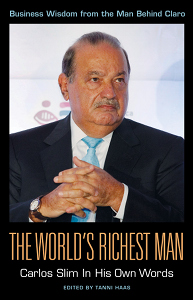
The World’s Richest Man
Photos: Agate Publishing, Inc.
Do rich and powerful businessmen share life lessons when they speak? Publishing company Agate executives think so. They launched In Their Own Words, a series featuring quotes from Steve Jobs, Bill Gates, Warren Buffett, Mark Zuckerberg, Richard Branson and most recently Carlos Slim, one of the wealthiest businessmen in the world. The World’s Richest Man: Carlos Slim in His Own Words (Agate Publishing, $10.95) edited by Tanni Haas, Ph.D. was published this year.
In addition to his wealth, Slim is also known because of he is part owner of the famous New York Times Company. The Mexico born businessman has a fortune estimated at $72 billion; lives in relatively modest home in Mexico City; and has transferred day to day management of his empire to his three sons, according to the Introduction.
A sample quote from the 148-page softcover book, from the Academy of Achievement, December 2, 2007, is: “I think that work is not only a social responsibility, but it is an emotional need. You need to work. You need to do things. You need to be active. You cannot be lazy.”
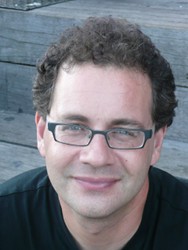
Tanni Haas, Ph.D., editor, The World’s Richest Man
The book is organized by topic to facilitate browsing, including Business and Investment, Leadership, Personal, Philanthropy and Education, and Politics and Economics. Agate B2’s In Their Own Words series titles are I, Steve: Steve Jobs In His Own Words, edited by George Beahm, a New York Times bestseller; Impatient Optimist: Bill Gates In His Own Words, edited by Lisa Rogak; The Oracle Speaks: Warren Buffett In His Own Words, edited by David Andrews, and Boy Billionaire: Mark Zuckerberg In His Own Words, edited by George Beahm. Haas, professor, City University of New York Brooklyn College, is author of Making It in the Political Blogosphere and The Pursuit of Public Journalism.
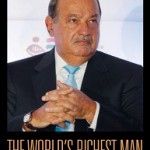
Click to buy The World’s Richest Man
Comments:
Filed Under: Books
Posted by Elena del Valle on June 19, 2014
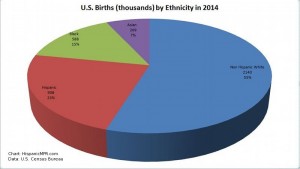
U.S. Births in 2013 by Ethnicity – click to enlarge
What’s the opposite of a baby boom (as in the Baby Boomer Generation)? A baby bust. Last year, 281,000 fewer babies were born than the United States Census Bureau had projected. Instead of 4,238,995 births there were only 3,957,577.
As a result of the bust, non Hispanic whites, with 54 percent of new babies, represent the majority of births. The Census Bureau anticipated only 49 percent of babies would be non Hispanic white.
In 2013, more non Hispanic white babies were born than the Census Bureau had projected. That is 2,140,272 rather than the projected 2,077,212 babies were born. On the other hand, 19 percent fewer Hispanic women gave birth than the Census Bureau had projected. Less than one million (907,859) babies were born to Hispanic mothers instead of the projected 1,122,069.
Following are the 2013 births and percent distribution by race and ethnicity: Asian 268,559 (6.8 percent), Black 587,612 (14.8 percent), Hispanic 907,859 (22.9 percent), and Non Hispanic white 2,140,272 (54.1 percent), according to American Consumers Newsletter June 2014.
Posted by Elena del Valle on June 13, 2014
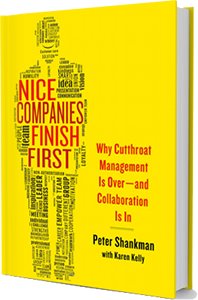
Nice Companies Finish First
Photo: Shankman.com
The era of self centered authoritarian leaders is dead. Long live the new era of nice leaders who care about more than the bottom line. So say Peter Shankman and Karen Kelly in Nice Companies Finish First Why Cutthroat Management Is Over and Collaboration Is In (Palgrave Macmilan, $26).
In the 245-page hardcover book Shankman argues that people work together in an “atmosphere that is conducive to civility and good cheer” at many successful companies. The positive attitude comes from the top and trickles down through the ranks, according to the author. A similar situation is present when the atmosphere is negative, he says. He points to research that indicates productivity is low where the work environment is unpleasant.
As examples of nice executives he mentions Richard Brandson at Virgin, Shantaul Narayen at Adobe, Dave Needleman of Jet Blue, Tony Hsieh of Zappos, Steve Jobs of Apple, and Kenneth Chenault at American Express. After speaking with dozens of leaders he considers nice he identified nine characteristics he shares in the book and hopes future leaders will embrace.
They are: enlightened self interest, making themselves accessible, the ability to listen well, being responsible and ethical managers, having loyalty to the whole company, maintaining an optimistic attitude, being customer oriented, competing based on merit, and caring.
Shankman is a principal at Shankman|Honig, a customer support and marketing consultancy. His two other books are Can We Do That?! Outrageous PR Stunts That Work–And Why Your Company Needs Them and Customer Service: New Rules for a Social Media World.
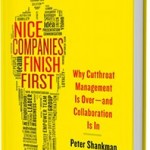
Click to buy Nice Companies Finish First
Comments:
Filed Under: Books
Posted by Elena del Valle on June 5, 2014

Seven for the Revolution
Photos: Bohlsen Group
Hoping to share his views on Latino immigrants and their desire to find opportunity and the American Dream Rudy Ruiz, the son of immigrants himself, shares seven fictional stories in
Seven for the Revolution A Collection of Short Stories (Milagro Press, $15). The 189-page softcover book was published in 2013. The stories are titled: The Colonel and His Bridge, Fighting Words, Bending the Laws of Motion, It’s My Wall Now, Pierce the Sky, Liberty Lost, and Inverted.

Rudy Ruiz, author, Seven for the Revolution
Born and raised along the United States Mexico border Ruiz is president and chief creative officer of Interlex Communications, a cause-related social marketing agency. His previous works include ¡Adelante! and Going Hungry.

Click to buy Seven for the Revolution
Comments:
Filed Under: Books


















